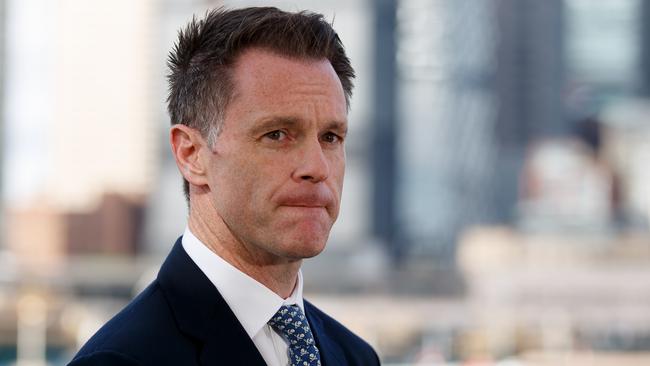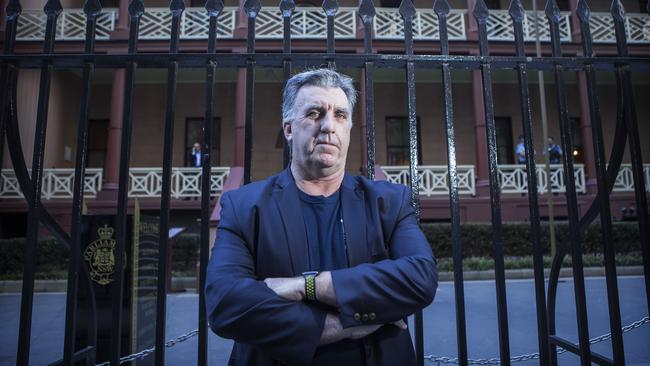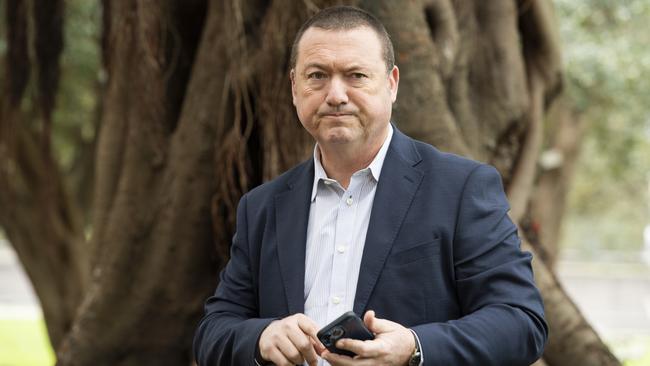James O’Doherty: Unions want fast action on public sector wage cap
Eight weeks after winning the election, Premier Chris Minns still has no timeframe on when he will scrap the public sector wage cap — and unions are not happy, writes James O’Doherty.
Opinion
Don't miss out on the headlines from Opinion. Followed categories will be added to My News.
Barely hours after he took to the stage to claim victory on election night, Premier Chris Minns was put on notice — it would not be long before the unions would come to collect.
As celebrations were wrapping up at the Novotel in Brighton-Le-Sands, Unions NSW boss Mark Morey told me that Minns would need “a decent amount of time to get the system back into shape so it delivers real wage increases that don’t bankrupt the state”.
Almost eight weeks later, it is clear that time is up.
When union leaders meet with Treasurer Daniel Mookhey and Industrial Relations Minister Sophie Cotsis on Friday they will come with a list of demands.
The bosses of all the major public sector unions are expected to be at the meeting, which will effectively mark the start of official negotiations about pay and conditions between the government and the union sector.
While Minns has already moved to deliver on some key election commitments, there has been little action on arguably the cornerstone of the Labor campaign.
Despite the Unions NSW boss making an appearance in the halls of parliament two days in a row last week, Minns still has no timeframe on when he will legislate to scrap the public sector wages cap.

Minns’ priorities have been elsewhere.
In the first week of parliament, Labor put ownership of Sydney Water into the state’s constitution and banned political donations from clubs with poker machines.
Asked on Thursday if he could at least commit to putting something before parliament by the end of the month to abolish the wages cap, Minns refused.
“I’m not committing to that but I am committed to progress,” he said.
That has left a sour taste in the mouths of union leaders who expected more urgent action.
Health Services Union boss Gerard Hayes, whose members are leading the charge with increasing strike action over pay and conditions, labelled Minns’ first priorities in office as “outrageous”.
Declaring he had only heard from the Premier “once in about four or five weeks”, Hayes said he had “never been in a situation like this, in the past decade, where there is no engagement”.
Until the HSU makes progress on workers’ pay and conditions, “the industrial action will continue and it will not stop,” he says.
That is strong language from someone who was instrumental in Minns getting the job of Labor leader and ultimately Premier.
And Hayes is not alone.

Public Service Association secretary Stewart Little also wants “meaningful discussion and clarity on exactly what is going to be put forward”.
He says it is “critical that we get some certainty on the wage increase” before July 1, when a raft of union agreements are set to expire.
But the view that Minns is not acting fast enough is not universal, particularly among unions whose agreements won’t run out until next year.
In reality, the Premier could abolish the wages cap today, with a stroke of a pen. He does not need a vote in parliament.
But there is a fear that scrapping the cap without changing the industrial relations framework could lead to more problems, by triggering a negotiations framework which no one has used in a decade.
“What replaces the existing infrastructure is really important,” Minns said.
“We made that clear in the election campaign that this wouldn’t be straightforward and it would be the subject of negotiations to ensure that we’ve got a fair system.”
Nevertheless he is “confident” of making “headway” in the coming weeks.

Before the election, Labor agued that rolling industrial action in 2022 (or the “year of the strike”) was a sign that the Coalition government was not listening to public sector workers’ concerns.
The longer Minns waits to sit down and thrash out a deal with union leaders to improve pay, the more he risks being seen as breaking a key promise.
But there are merits in the Premier’s cautious approach.
Labor wants to overhaul the industrial relations framework to help increase pay and conditions without breaking the bank.
That will be a difficult needle to thread, and one that should not be rushed.
Before the election, the independent parliamentary budget office found that if public sector wages increased by one per cent above the current 2.5 per cent cap, it would cost the budget $2.6 billion.
That’s not the kind of money that should be spent willy-nilly.
Minns is hoping he is still enjoying a honeymoon period and that voters will give him more time before they expect him to come good on increasing pay and conditions for many essential workers.
Convincing the public that this should not be rushed is one thing; it will be a much tougher task asking union leaders for more time to pay his dues.
James O’Doherty is The Daily Telegraph’s State Political Editor





